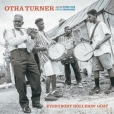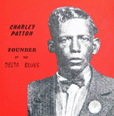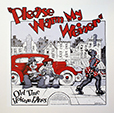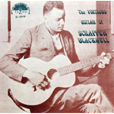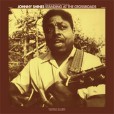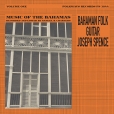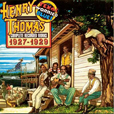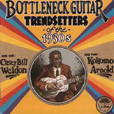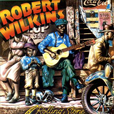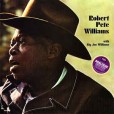Your basket is empty

‘The trance blues stylings of Otha Turner and his Rising Star Fife And Drum Band should be a music classification unto itself, a whole new primitive take on drum and bass. This music is the oldest still-practiced post-colonial American music, and Turner was one of its greatest artists of the 20th century. Blowing the cane fife with a band of drummers as back up, The Rising Star Fife And Drum band was legendary in the hills of Tate County, Mississippi, where they would perform during the yearly goat picnics on Turner’s farm. These tracks were recorded by Luther Dickinson during such picnics and released when Turner was ninety years old. Everybody Hollerin’ Goat shows firsthand the hypnotic and rhythmic style of fife and drum music at its best — raw and beautiful. It is every bit as essential a document of America’s folk-music heritage as anything Harry Smith or Alan Lomax ever offered up for posterity. This first ever vinyl release of Everybody Hollerin’ Goat contains a whole side of unreleased recordings from one night of the picnic and is intended to bring the experience of hollerin’ for goat in Senatobia, Mississippi to the living room. Dancing around the plants is recommended (but don’t eat the pickled eggs).’
Bawdy, vaudevillian malarkey, both country and urban, with no messing musically. Stuff like Banana Man, You Put It In I’ll Take It Out, I Had To Give Up Gym, Elevator Papa Switchboard Mama. Crumb cover.
Stone-classic country blues album recorded by Pete Welding for Testament in 1970. Just singing and slide guitar, still crackling and luminous with the time Shines knocked around with Robert Johnson in the mid-30s.
“Blues is like death. Blues is when you are lost. Blues is when you are depressed but don’t know why you are depressed.”
It’s a must.
‘You could scarcely find two more contrasting bottleneck stylists… the ‘Hawaiian Guitar Wizard’ played upbeat, concerned with smooth tone. Arnold usually played solo, with strident tones, generally frenetic…’
1928-35 recordings by the Memphis bluesman (with Cherokee Indian close by in his family tree) — including That’s No Way To Get Along, later covered by the Rolling Stones as Prodigal Son.
